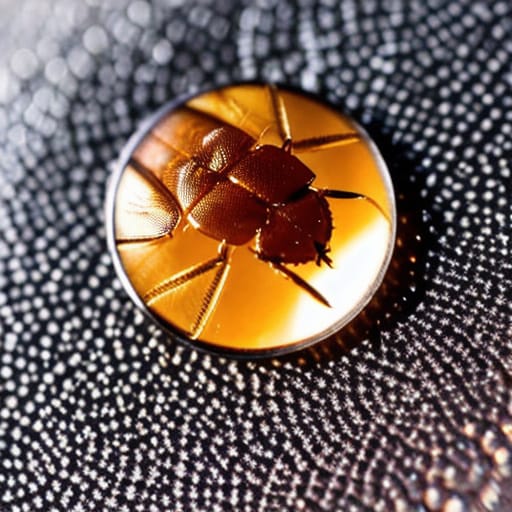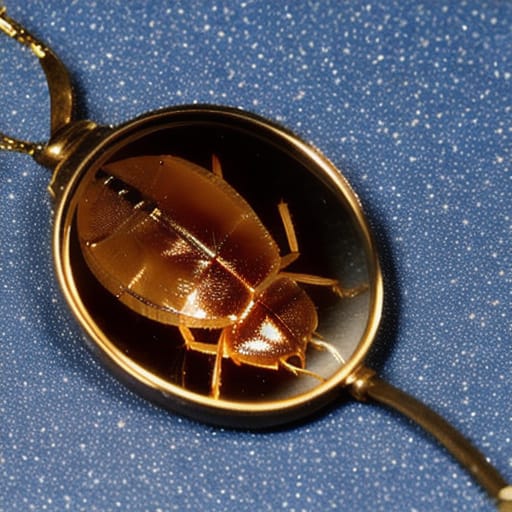Sleeping safe and sound is a priority for most people. But when you start to wonder “do down comforters get bugs?”, it can disrupt that comforting peace of mind at bedtime.
It’s an alarming thought – the idea that the cozy down-filled comforter you curl up under could play host to tiny unwelcome guests like bed bugs or dust mites. The good news is there are some straightforward things you can do to reduce the risk and keep your bedding pest-free.
This comprehensive guide covers everything you need to know to protect your down comforters and other bedding. We’ll explore which bugs could take up residence, how to prevent infestations through proactive care, what signs to look for, and how to get rid of bugs if they do appear. Read on for peace of mind about what’s living inside your linens.
Which Bugs Are Concerns for Down Bedding?
The two main culprits when it comes to Potential bugs in down comforters are:
Bed Bugs
Tiny, flat, oval-shaped bugs that feed solely on blood. They get their name from their tendency to hide in bedding and furniture cracks during the day, then come out at night to feed.
- Adults grow to about 1/4 inch long
- Reddish-brown in color, becoming purple after feeding
- Bites cause itchy welts on skin
- Hard to eradicate once established
Dust Mites
Microscopic bugs that feed on shed human skin cells and thrive in warm, humid environments. They are present in all homes.
- Tiny – can only be seen under a microscope
- Main concern is allergen proteins in their waste matter
- Cause asthma, eczema, runny noses, itchy eyes
- Constantly reproducing with short life cycles
Do Down Comforters Naturally Repel Bugs?
Many people assume that because down comforters are tightly woven and fluffy, they’d be difficult for bugs to penetrate. But any bedding material can become infested under the right conditions.
Down itself does not repel or deter pests. However, some features like baffle box construction and high thread count cotton shells can provide barriers.
Proper handling and preventative care are vital to keeping your comforter pest-free. Don’t rely on the materials alone to ward off insects. Be proactive.
Preventing Bug Infestations in Down Bedding
While both bed bugs and dust mites can show up in any home, there are measures you can take to minimize likelihood and prevent full-blown infestations in your linens.
Keep bedroom clean & dry
- Vacuum and dust surfaces weekly
- Wash all linens at high heat monthly
- Fix any leaks; monitor humidity
- Declutter to eliminate hiding spots
Carefully inspect new/used items
- Check secondhand furniture for bugs
- Wash any used textiles on hot before use
- Freeze non-washables like books for 4+ days
Encase mattresses & box springs
- Zippered covers prevent exposure
- Hypoallergenic versions resist dust mites
- Ensure tight fit so bugs can’t penetrate
Use mattress & pillow protectors
- Create a barrier between you and bugs
- Washable covers to remove allergens
- Pillow covers prevent skin cells from accumulating
Signs Your Down Bedding Has Bug Infestation
If preventative steps fall short and bugs infiltrate your linens, there may be signs of infestation. Look for these clues:
Bed Bugs
- Tiny dark stains from droppings clustered together
- Rusty red spots from crushed bugs
- Pale yellow shed skins
- Offensive sweet, musty odor
- Bites in straight lines or clusters
Dust Mites
- Chronic runny nose, sneezing, coughing
- Itchy skin, eczema, asthma flares
- Noticeable dust buildup in textiles
- The musty, stale smell
- Presence of dermatophagoides droppings
Thoroughly inspect mattresses, box springs, bed frames, headboards, carpet edges and baseboards in the bedroom for any signs. The sooner bugs are detected, the easier removal will be.

Can You Put a Down Comforter in the Dryer to Kill Bugs?
Heat is often the recommended treatment method for linens that become infested with bed bugs or contaminated with dust mite matter. So a logical first reaction could be “Can I put my down comforter in the dryer to kill any bugs?”
Should You Machine Dry Clean Down Comforters?
No! Down comforters should never be machine dried, even to attempt bug removal. The high heat levels combined with tumbling will damage the down, causing clumping and loss of loft and warmth. Delicate drying cycles don’t get hot enough to reliably kill bugs.
Other Heat Treatments
Instead, consider these methods which use heat to kill bugs without harming your own bedding:
- Place in a commercial clothes dryer on high heat – ensure no tumbling
- Use a disinfecting heat chamber like Thermapure
- Contact a reputable dry cleaning service – some offer heat treatments
- For small items, try hair dryers over 140°F focused on seams/crevices
Check manufacturer instructions and test on an inconspicuous area first when using heat. Monitor temperature with a thermometer and frequently reposition items to ensure thorough heating.
Freezing to Kill Bugs in Down Comforters
Extreme cold can also neutralize bugs through long exposure. Freezing is an effective, chemical-free treatment option.
To freeze a down comforter:
- Place loosely in a breathable bag
- Submerge in chest freezer, keeping air pockets
- Freeze for a minimum 4 days below 0°F
- Remove and air out; wash/dry thoroughly
Freezing can be used alone or paired with heating methods. It targets all life stages of bed bugs and helps dry out dust mite matter. Assess the comforter after treatment – repeat if needed.
Is Dry Cleaning Effective Against Down Comforter Bugs?
Some professional dry cleaners offer services specifically for bed bug removal from bedding and upholstery. Look for those experienced with these treatments.
Typical Dry Cleaning Process
- Pretreat with steam or spot clean visible bugs
- Wash in specialized equipment with harsh detergents unsuitable for home use
- Soak in EPA-approved disinfectants that kill bugs
- Dry thoroughly and encase items in sealed plastic bags
Dry cleaning uses chemicals but may be less damaging than heat for delicate down items. Ask about their bed bug protocol and experience up front.
Preventing Reinfestation of Down Bedding After Treatment
Killing existing bed bugs or removing dust mites from your down comforter won’t ensure they stay away permanently. Reinfestation happens easily if conditions allow bugs to return.
Follow these tips to make your bedding as inhospitable as possible:
- Keep bedroom clean & dry: Vacuum and dust weekly, fix leaks, monitor humidity
- Isolate treated bedding: Bag linens tightly after cleaning. Leave bags sealed for 6-12 months.
- Carefully monitor: Do weekly inspections of mattress seams, crevices & carpets for signs of returning bugs
- Consider professional pest control: If the infestation is severe, bring in an exterminator to fully treat the room
Stay vigilant with thorough cleanliness habits and monitoring to prevent recurring issues after addressing bugs.

Is It Possible to Make a Down Comforter Bug-Proof?
While you can’t make down bedding 100% impervious to all bugs, some protective measures come close to making items bug-proof:
Encasements
Mattress and box spring encasements create a full barrier around sleep surfaces, preventing exposure or escape. Features include:
- Tight zipper seals to lock out bugs
- Fine meshes small enough to block microscopic insects
- Hypoallergenic materials
- 10-15 year lifespan
Airtight Storage Containers
Lined plastic bins with gasket seal lids deny bugs access by sealing out air. Look for models advertised as:
- Insect-proof
- Air-tight
- Crush & pinch-proof
- Acid-free
- Moisture and dust resistant
The right storage paired with thorough initial treatment provides potent prevention.
Frequency Asked Questions
Can you put down comforters in the washer and dryer?
Washing machines can damage stitching and ruin structures. Only wash in front loaders on delicate cycles according to label instructions. Never machine dry – air dry only.
Do dryer balls kill bugs in the dryer?
No – dryer balls are for softening fabrics. They don’t produce enough heat or distribute it evenly enough to kill all life stages of bugs. Rely on other methods.
Can bugs live in silk comforters or other bedding?
Yes – bed bugs and dust mites can infest any fabric. Follow prevention tips, encase mattresses, isolate treated items, and remain vigilant.
When should you replace a down comforter due to bugs?
If problems persist after thorough repeated cleaning and treatment attempts, replacement may be needed. Severe infestations can permanently damage the down’s insulating ability.
The Bottom Line: Safeguard Your Down Bedding
It’s normal to feel concerned about the prospect of bed bugs or dust mites inhabiting your cozy down-filled bedding. But some simple preventative care, vigilance about signs, and prompt treatment if issues arise can help protect your comforter.








